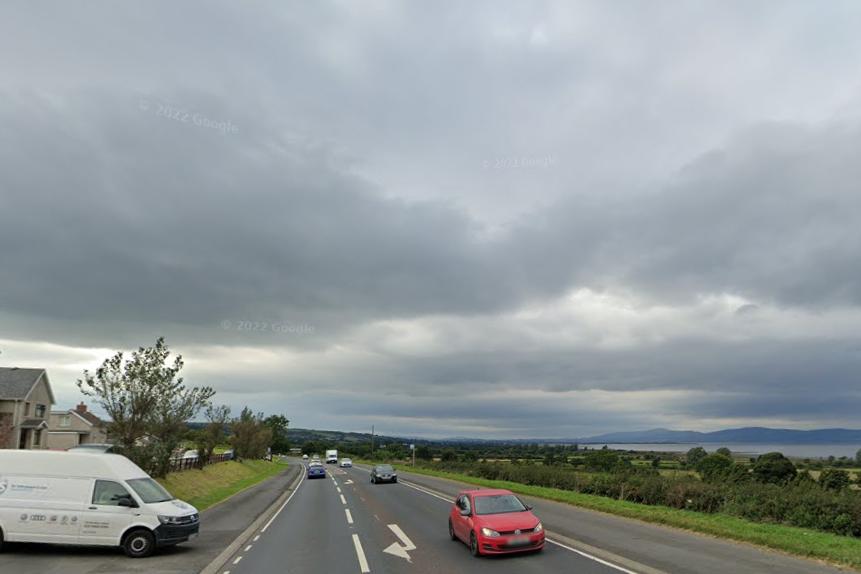- News
- Reviews
- Bikes
- Accessories
- Accessories - misc
- Computer mounts
- Bags
- Bar ends
- Bike bags & cases
- Bottle cages
- Bottles
- Cameras
- Car racks
- Child seats
- Computers
- Glasses
- GPS units
- Helmets
- Lights - front
- Lights - rear
- Lights - sets
- Locks
- Mirrors
- Mudguards
- Racks
- Pumps & CO2 inflators
- Puncture kits
- Reflectives
- Smart watches
- Stands and racks
- Trailers
- Clothing
- Components
- Bar tape & grips
- Bottom brackets
- Brake & gear cables
- Brake & STI levers
- Brake pads & spares
- Brakes
- Cassettes & freewheels
- Chains
- Chainsets & chainrings
- Derailleurs - front
- Derailleurs - rear
- Forks
- Gear levers & shifters
- Groupsets
- Handlebars & extensions
- Headsets
- Hubs
- Inner tubes
- Pedals
- Quick releases & skewers
- Saddles
- Seatposts
- Stems
- Wheels
- Tyres
- Health, fitness and nutrition
- Tools and workshop
- Miscellaneous
- Tubeless valves
- Buyers Guides
- Features
- Forum
- Recommends
- Podcast
news
 Signs campaigning against plans for new relief road in Watlington (Oxfordshire Roads Action Alliance)
Signs campaigning against plans for new relief road in Watlington (Oxfordshire Roads Action Alliance)“It beggars belief”: Council slammed for raiding active travel funds to build “unnecessary, damaging” new road in small town
A council’s plans to plunder its active travel budget to build a highly contentious and “unnecessary” relief road have been condemned by local campaigners and politicians, who say it “beggars belief” that the authority would spend the bulk of its active travel funding on new roads, instead of “investing properly in walking and cycling”.
In the first draft of its new proposed budget, set to be finalised in February, Oxfordshire County Council says it will take £11.1 million from its £13.62 million cycling and walking fund, earmarked for schemes which “encourage and facilitate active travel and improve market towns”, to build a new relief road in Watlington, a small market town with a population of around 3,000.
According to the council, the bypass will “reduce congestion and noise and air pollution” in the town, while connecting existing and proposed housing developments around its northern and western sides, and providing access for motorists in south Oxfordshire to the M40, A34, and B4009 without the need to travel through the centre of Watlington.
Watlington High Street
The plans also say that the road will include facilities for cycling, walking, and travelling by bus. However, engineering consultants have said that these “basic” facilities are “unlikely to see significant levels of use” – prompting local campaigners to insist that the project is “not an active travel measure and should not be considered as such”.
Last week, the Oxfordshire Roads Action Alliance (ORAA), a community-based campaign group which promotes sustainable transport across the county and opposes the creation of new roads, wrote to councillors last week calling on them to vote against the Liberal Democrat and Green Party-controlled authority’s proposed budget.
“At a time when the county council is seriously short of money it makes no sense to be pushing this unnecessary road,” the ORAA’s co-chair Chris Church told the Oxfordshire Herald.
“What money is available should be spent on fixing potholes across the county rather than a damaging new road round one small town.
“This proposed road is not an active travel measure and should not be considered as such. A track for pedestrians and cyclists beside a large new road does not meet current standards for such schemes.
“This is a questionable use of public money and misrepresentation of its purpose.”
Meanwhile, Labour county councillor Charlie Hicks was also scathing of the local authority’s failure to meet its cycling and walking targets, while being seemingly set to raid its active travel coffers for new roads.
“While there is a pothole black hole of hundreds of millions of pounds in Oxfordshire and the council is on course to miss its own walking and cycling targets, it beggars belief that the Lib Dems would take millions from the walking and cycling pot and spend it on building new roads, rather than fixing the roads they are already meant to look after or investing properly in walking and cycling,” he said.
National engineering consultants Hydrock also pointed out that while the proposed scheme would provide “basic pedestrian and cycle facilities”, these are “unlikely to see significant levels of use” due to the nature of the road.
However, the council has insisted that the plans would “meet the needs of existing and future communities” by reducing congestion.
“The proposed relief road will help to ensure that Watlington is able to meet the needs of existing and future communities by significantly reducing congestion through the heart of the settlement,” a spokesperson said.
“It includes facilities for walking, cycling, and travel by bus, as well as delivering connectivity to the wider network through proposed active travel improvements at Pyrton Lane and Shirburn Road.
“However, we will always ensure that safety, the climate, maintenance considerations, and measures to facilitate active travel are at the heart of any new road design and construction programmes.
“Pothole repairs and facilitating travel on foot and/or by bicycle have always played, and will continue to play, a key part in the overall budget setting process for this administration.”
Meanwhile, the council’s cabinet member for infrastructure and development strategy, Judy Roberts says that the plans will benefit cycling and walking in Watlington because they will help reduce congestion in the town.
“Its aim is to alleviate congestion, noise, and air pollution in the town centre and enable future housing developments, by offering more sustainable modes of transport including cycling and walking,” Roberts said last month when the plans were officially submitted and a consultation process agreed.
While the use of active travel funds for new roads has provoked consternation in Oxfordshire, a similar uproar occurred last month in Northern Ireland, where the Department for Infrastructure (DfI) was accused of potentially misleading reporting of its active travel spending, after telling the public that it is spending £2.6m on a cycle lane project, only for it to since emerge that a major part of the supposed “active travel” investment is for “resurfacing of the carriageway”.
In a report published by the Belfast Telegraph, the newspaper said it wanted to question why the DfI described the entire £2.6m allocated for the project near Ballykelly as coming from its active travel budget “when most of the work relates to a road for cars and lorries”.
The newspaper stated that it “also asked whether this is the way in which DfI regularly apportions expenditure, describing road building as ‘active travel’,” a habit that also seems to have caught on across the Irish Sea if Oxfordshire County Council’s new plans are anything to go by.
After obtaining a PhD, lecturing, and hosting a history podcast at Queen’s University Belfast, Ryan joined road.cc in December 2021 and since then has kept the site’s readers and listeners informed and enthralled (well at least occasionally) on news, the live blog, and the road.cc Podcast. After boarding a wrong bus at the world championships and ruining a good pair of jeans at the cyclocross, he now serves as road.cc’s senior news writer. Before his foray into cycling journalism, he wallowed in the equally pitiless world of academia, where he wrote a book about Victorian politics and droned on about cycling and bikes to classes of bored students (while taking every chance he could get to talk about cycling in print or on the radio). He can be found riding his bike very slowly around the narrow, scenic country lanes of Co. Down.
Latest Comments
- R_Peters 2 sec ago
I got the Winspace Agile model last summer and I couldn't be happier, it's very well made, light, fast, aero and very comfy, I highly recommend...
- stonojnr 6 min 25 sec ago
At Greenwich the bridge would have to be up as high as the cable car which is why it's always been a non starter.
- chrisonabike 10 min 10 sec ago
Aren't all the bike / scooter share companies funded by advertising, essentially funded by the municipality or "venture capital" (don't fully...
- chrisonabike 25 min 20 sec ago
Obviously a woke waste of money! We just need better drivers! Through .. er ... more police / "tech" / "self-driving cars" (one for "non-drivers...
- Miller 31 min 37 sec ago
I didn't think the US was into smaller, lighter vehicles. Quite the opposite.
- chrisonabike 33 min 17 sec ago
"Should" - but a) UK driving culture and ultimately b) humans....
- chrisonabike 47 min 39 sec ago
Ho ho ho! But we're past the season of revels, and it's not April 1st....
- McVittees 1 hour 4 min ago
You'd think so but it isn't. Have google. MTB trail pants are very slim cut with no real bagginess. In fact, I was surprised how comfortable they...
- wtjs 1 hour 25 min ago
As promised, Park Hill Road, Garstang today- one of many. I'm not trying to incite a competition- around the country there will be many busy roads...
- STEVESPRO 79 1 hour 31 min ago
Personally think that the silence from roadcc speaks volumes and sadly we will all be seeking pastures new for our fantasy cycling kicks this year....



Add new comment
34 comments
I wonder if traffic in Watlington was a significant campaigning issue for the new LD MP?
“It includes facilities for walking, cycling, and travel by bus, as well as delivering connectivity to the wider network......"
So why not just construct the public transport, walking and cycling bits then? That really would fulfil their obligation to use Active Travel funding for the purpose for which it was intended and deter car use.
I wouldn't even mind if they did the road, then allocated a certain proportion in keeping with the costs of the bike lane to active travel. Maybe even let them have the costs of the pavement, at a push.
I live near new flood prevention works, which has included the addition of a decent cycle path and upgrading the pavement. The work inevitably included resurfacing of the adjacent road on completion. But if you believe social media, the council spent the whole budget for the project on 'bike lanes that no-one wants, while refusing to fix the roads.' To add insult to injury, when the road was closed for the resurfacing, the council were still in the wrong.
Because that wouldn't solve the problem of the amount of heavy through traffic going through the narrow town centre road which creates a dreadful environment for residents, pedestrians and cyclists.
Pages